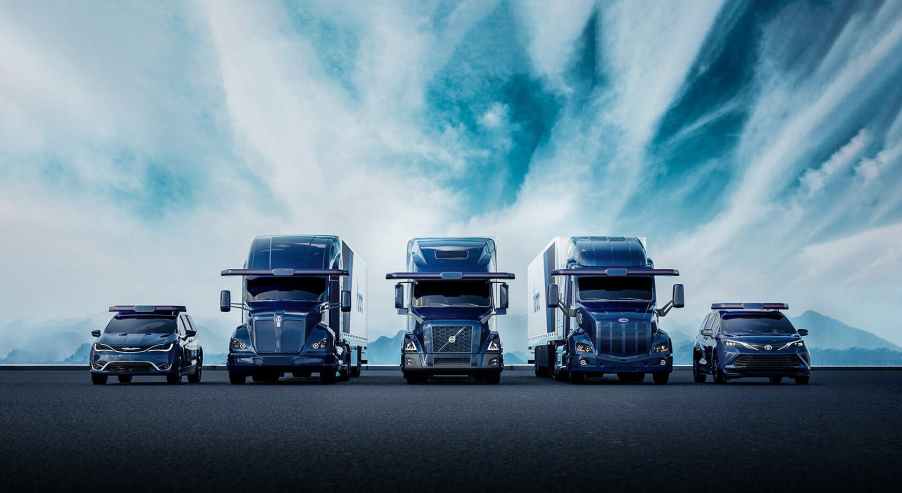
Aurora Has Major Plans For Their Autonomous Vehicles
Autonomous vehicles are on their way to becoming commonplace on roads and highways all over the world. Several forms of autonomous driving technology are already available to consumers. Tesla’s Autopilot technology has turned virtually all of its cars into autonomous vehicles in the eyes of consumers.
While some critics are concerned about the safety of autonomous vehicles, some are going all-in. Several startup firms are looking at the commercial potential of autonomous vehicles for other applications such as ride-hailing and transportation of goods. Eliminating the human-driver element from those segments can mean a considerable increase in potential profits. Generally speaking, most startup companies are approaching ride-hailing or transportation. However, some companies are looking to take on both of those segments.
Texas-based startup Aurora sees a future in semi-truck and robotaxi autonomous vehicles

According to a report from Automotive News, autonomous vehicle startup Aurora believes that they have cracked the code for making autonomous vehicles profitable. The self-driving firm recently showed off its technology to investors approximately a week ahead of the company going public. Aurora is looking to raise $2 billion in funding from their public offering.
Aurora is not only interested in ride-hailing autonomous vehicles AKA “robotaxis”, but they are also targeting autonomous semi-trucks for mass transportation of goods. The company believes that by tackling both segments simultaneously, there is an opportunity to lower costs and transfer data between both areas of self-driving commerce.
“Trucking allows us to build a profitable, scalable business that funds the further development of ride-hailing and brings down the cost of hardware,” Sterling Anderson, Aurora’s co-founder and CPO, said in an interview.
If Aurora’s strategy of using autonomous trucking to bring down the cost of ride-hailing pans out, the company could see itself in an advantageous position amongst competitors such as Waymo and Cruise.
Two autonomous vehicle companies already have a headstart

While Aurora has a clear plan for where they want to go with autonomous vehicle services, they are behind some of their competitors, who have already made significant steps toward profitability.
Recently the California Department of Motor Vehicles granted permits to Waymo and Cruise to deploy autonomous vehicles for commercial use. In effect, both companies can theoretically start making money from autonomous ride-hailing now, while Aurora is still waiting for funding to push their plans forward.
Waymo is backed by Alphabet (the parent company of Google), and Cruise is a subsidiary of General Motors. Though, Cruise’s use of Chevy Bolts for their autonomous fleet might come back to bite them.
Waymo also has plans to explore autonomous semi-trucks for transportation; however, it seems that their focus is on ride-hailing first before moving into that segment.
Time will tell if Aurora’s two-pronged strategy will allow them to catch up to their competitors in time to carve out their slice of the emerging self-driving market.


